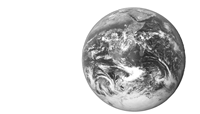Change the mindset to save the planet
Published on Thu, 2011-03-17 12:42
By Roberto Bissio Environmentalists, economists, feminists and social activists from all over the world, after many years of criticizing governments are now calling for States to be strengthened as the only way to save the planet, threatened by a whole series of crises in climate, water, food and finances. On Monday, March 7th, sixteen members of the self-appointed Reflection Group on global development perspectives formulated a call to “change the mindset" about environmental and economic problems. This call is aimed primarily at the negotiators who are preparing the United Nations Summit for Sustainable Development, which will be held in Rio de Janeiro in 2012, twenty years after the “Earth Summit”, where the concept of sustainable development was endorsed and the foundations were laid for conventions on climate change, desertification and deforestation. The changed mindset they are now demanding begins with “restoring public rights over corporate privileges”. The signatories assert that “after thirty years of strengthening the power of investors and big corporations through deregulation, trade and financial liberalization, tax cuts and exemptions, and weakening the role of the State; and after the market-driven financial meltdown, the principles and values of the Rio Declaration and the UN Millennium Declaration, adopted by heads of States and governments, are threatened and urgently need to be re-established”. These principles include human rights, liberty, equality, solidarity, diversity, respect for nature and the common but differentiated responsibility of States, rich or poor. “Corporate interests do not uphold these principles and values”. The second point in the statement recommends “taking equity seriously” since the policies of the last thirty years –that is to say since the conservative revolution of Reagan and Thatcher- “further widened the gap between rich and poor and have exacerbated inequities and inequalities, not least regarding access to resources”. The statement asserts that “unbridled market forces have favoured the strong, thereby widening the economic divide. This requires the State to redress the imbalance, eliminate discrimination, and ensure sustainable livelihoods, decent work and social inclusion. Intergenerational justice requires restraint and responsibility of the present generation. It is urgent to establish more equitable per capita rights towards the global commons and to the emission of greenhouse gases, taking fully into account historical responsibility”. The more developed countries have not accepted these last two principles, and this is what has blocked progress in negotiations about climate change. The third and last demand in this brief statement is a call for environmental protection, which is urgently needed "after more than sixty years of global warming, loss of biodiversity, desertification, depletion of marine life and of forests, a spiraling water crisis and many other ecological catastrophes”. This process started in the 1950s, when the baby boom generation triggered mass consumption of the planet’s non-renewable resources. The environmental crisis unleashed by this unrestrained consumption by the rich “is hitting the poor much more than the affluent”. The signatories do not adhere to Malthusian ideas about the exhaustion of resources and maintain instead that "knowledge-intensive solutions including technologies are available to restore natural systems, and dramatically reduce pressures on climate and the environment while improving human well-being”. They argue that a “green economy” is possible, but insist that this must be integrated into “a holistic concept of sustainability”. They conclude that what we need “a change of lifestyles”. To achieve this, “The Rio 2012 Summit must re-affirm the State as the indispensable actor setting the legal frame, enforcing standards of equity and human rights, and fostering long-term ecological thinking, based on democratic legitimacy”. Signatories of the call The complete text of the call is available at www.choike.org * Director of the Third World Institute (ITeM)
|
SUSCRIBE TO OUR NEWSLETTER



